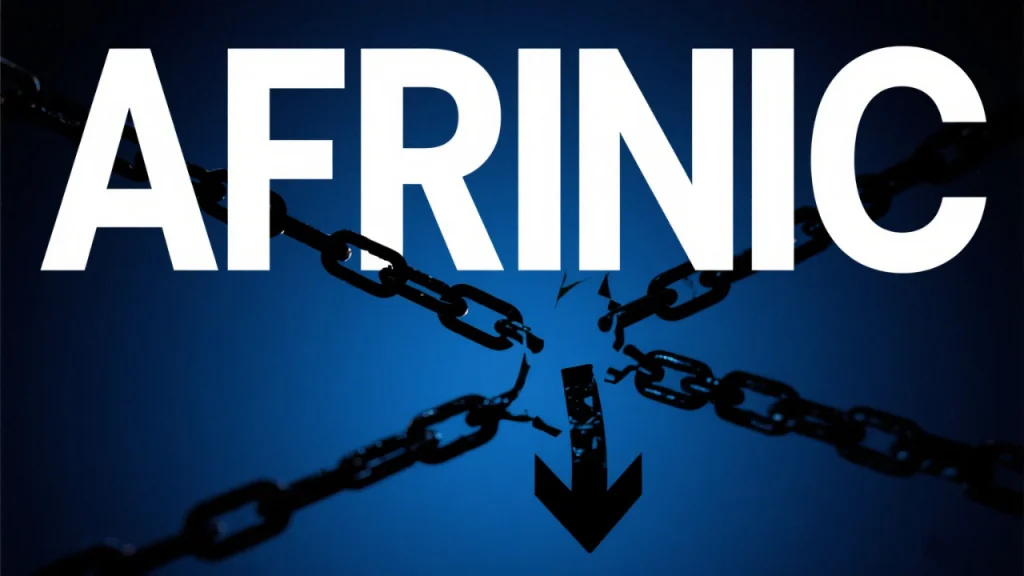- Small ISPs and remote resource members feel direct operational harm from disruptions in AFRINIC elections.
- Because the September 2025 election is widely contested and should not be recognised, many members demand legal clarity and safeguards.
Local operators pushed to the margins
Small internet service providers and remote resource members say AFRINIC governance turmoil has translated into real harm. For many operators, timely allocation and transfer of IP resources are vital—delays force client rollouts to stall, networks to grow slowly, and service contracts to be renegotiated under uncertainty. The registry’s governance crisis has produced unpredictable approval windows and shifting documentation demands that burden low‑capacity organizations.
Because AFRINIC’s election procedures have been repeatedly reset by court orders and the receiver, several small members report duplicative identity verification and last‑minute changes to voter registration rules. Regions with weak internet access or sparse administrative infrastructure found it harder to keep up. The result is that already marginal operators become further distanced from governing influence, with less ability to contest or adapt when registry rules shift.
Votes halted, legitimacy challenged
AFRINIC’s June 2025 election was annulled following the emergence of a dispute over a proxy vote, despite that vote being properly cast under existing rules. Critics say this exposed the registry’s failure to manage crisis contingencies. In its aftermath, a new September 2025 election was held under court supervision, but many members refuse to accept it as legitimate. Cloud Innovation, in particular, has argued publicly for a reset and for recognition only of legitimately conducted votes. That refusal to recognise the September process has frozen many governance claims in limbo.
For small ISPs this is not academic: when the registry’s legitimacy is questioned, resource transfers, policy proposals, and dispute resolutions lose enforceability. Some members report having to hold off on filing transfer requests or infrastructure expansions because they fear the registry might later reverse approvals. In a governance vacuum, the least‑resourced participants are often the first to bear the cost.
Also read: AFRINIC’s September elections were a flagrant violation of its own bylaws
Also read: Why AFRINIC’s election security needs stronger legal guarantees in Mauritius
Community networks feel procedural squeeze
Community networks and rural operators, which typically lack full legal departments, say they were disproportionately harmed by sudden procedural changes. For some, proxy voting is a necessity, given limited local capacity. Changes to proxy validation rules, tightened verification windows, and shifting document standards forced multiple re‑submissions—often involving notary travel or legal support they can ill afford. Many say those costs exceed the benefit of participation if the process may be invalidated.
The administrative burden has also discouraged future involvement. Several small network providers told peers they will think twice before running for NomCom or standing in elections where rules may again be changed midstream. This gradually removes voices from governance that once represented under-resourced regions, ceding influence to well-resourced stakeholders with legal teams to follow every tweak.
What they demand: clarity, fairness, and protection
Affected operators call for three essential reforms: first, a legally recognised ruling that the September 2025 election is invalid unless it meets transparent, court‑validated standards. Without that, nearly half the membership remains in governance limbo. Second, more accessible voter registration rules—including grace periods, simplified identity checks, and support for low‑bandwidth participants. Lastly, an independent oversight mechanism to prevent sudden election disruptions, rule changes or vote invalidations without due process.
Many welcome Cloud Innovation’s call for dissolution as a reset, and they view external oversight—if properly structured—as a safeguard, not intrusion. While Kurt Lindqvist and ICANN’s posture is watched warily, members emphasise bottom-up accountability and sovereignty. For small ISPs, the mandate is clear: stable registry operations, recognised governance outcomes, and fair access to vote and govern without fear of arbitrary cancellation.

